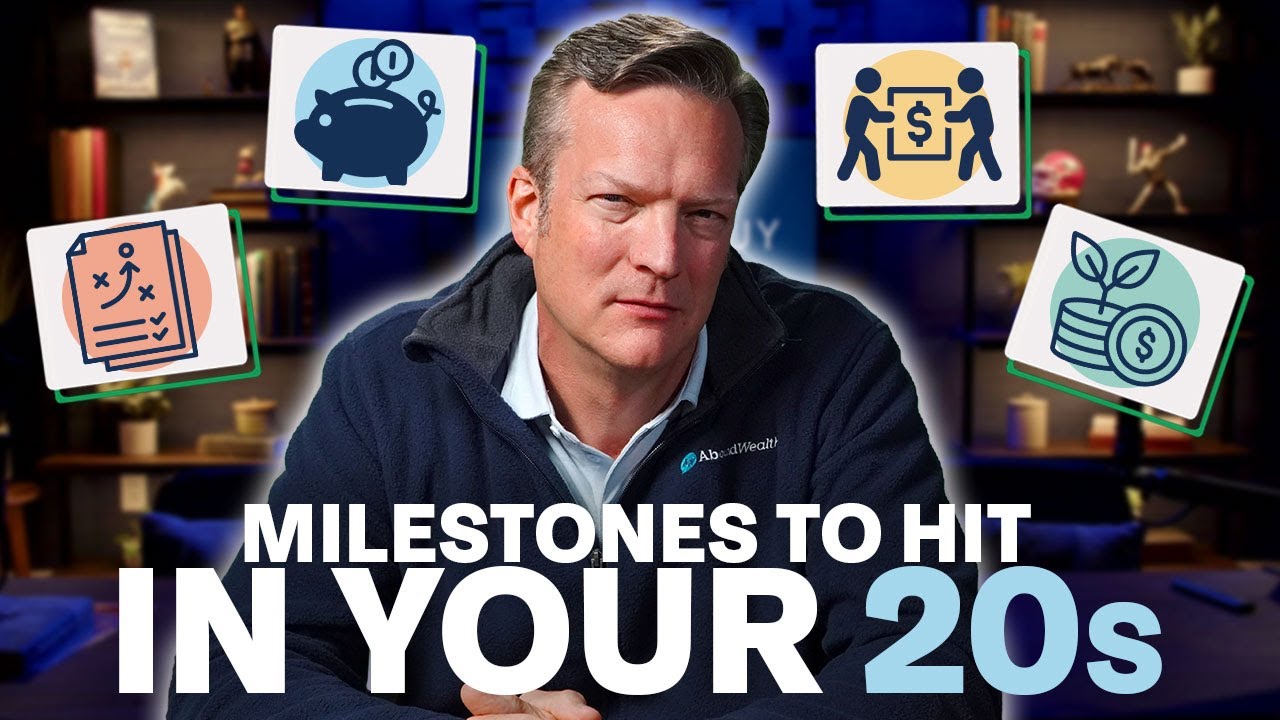Okay, next up, we’ve got a question from Mojo24. It says, “How do you decide what to do with large sums of money? I have about 400k sitting in a high-yield savings account. I want to buy a home in the future, but my current rent is so low that I’ve been putting it off. So, should I keep this money in a high-yield savings account, or should I do something different?”
Well, you know, this is an easier problem to have now than it used to be, right? It used to be harder when you were sitting on cash because cash was trash. It just wasn’t paying anything. Bri, you remember when cash was paying like 25 basis points, and that’s if you found a really, really good payer like the high Yi? That was the high stuff. And now, your cash can make over 5%. But Mojo does provide an interesting quandary. “I want to buy a house. I have a use for these dollars, but my time period is a little uncertain.”
Right. So, I think where my mind went immediately, and I’m curious if you’re the same, the first thing you definitely have to do is use the financial order of operations as your rubric. Can you hold up the thing? Oh, yeah. If I’ve got this large sum, have I done one, have I done two, have I done three, have I done four, have I done five? Have I done those things? Assuming that you are now in Step seven in hyperaccumulation, at that stage, I think then you can start thinking through, “Okay, what’s the best use of these dollars above and beyond the 25%?”
Agree with that. Assess. I think immediately what came to my mind was you have to stratify your timeline. I mean, be honest with yourself, brutally honest. Is this home purchase going to occur in the next three years or likely? And if it’s like a 75% chance that you’re still going to need every bit of this 400,000 for the down payment in the next three years, you’ve got to put a moat and see it off. Just protect that cash reserve. Keep it in cash reserves, even though you’re probably having the itch to go do something else with it. But if you need this money in the next three years, it needs to stay liquid.
If you stratify by the fact that, no, you think you’ve got a great maybe, somebody, because we had a house here in the community that we had. I can’t remember if we had two employees or three employees that worked through it. It was somebody who had a really nice beginner home. They moved away and were now renting it. But they were a couple that didn’t want to take advantage of where market rates were or anything like. They just didn’t want to sell it because they loved this house. They felt like they might come back to the community, and they might want this house back. So they were just looking for good families to rent this house at good prices. And I love that we had multiple employees that cycled through it, but it’s now we got to a point where nobody wanted it, but it is one. So you might have found somebody who’s offering a great deal. They just want a great tenant to protect their house, take care of their house. So it’s better than market on what you’re paying for this, and you’re going to be in this house for the next five years.
You know, because it doesn’t make sense to go buy a house at overvalued prices when you’re in this under-market rent situation. If that’s the case, then you now have a bigger decision because you can stratify the timeline to say, “Yeah, this money might have a longer time horizon than what I need for liquidity purposes.” And if you do stratify it out and you figure out, “Oh, I do have a longer timeline,” my opinion on a sum this large — let’s say it’s $400,000 or you said it was 400,000 — there’s nothing wrong. Okay, I’m pretty sure I’m not going to need this inside of the next three years, but maybe it’s three to five, maybe it’s five to seven. I don’t think there’s anything wrong with implementing a low nominal dollar cost averaging strategy.
So again, I’m going to use a number, maybe it’s $3,000 a month. I’m just kind of making this off on the fly, not knowing your situation. Alright, I’ve got this money sitting in cash. I’m just going to start dollar cost averaging into a low-cost index fund every month, $3,000 a month, $3,000 a month. Well, a year from now, I will have invested $36,000 of that cash, but I’ll probably have a better idea of where my housing situation is. And if it still looks like it’s going down the road, then I’ll just keep that going on. And maybe I’ll do 3,000 over the next 12 months. Well, now I’ve got $72,000 that I have in, and you can just continue to approach it that way.
Well, if you get far enough out, the money you started dollar cost averaging five years ago, maybe the dollars that are available today to go out and buy the house or utilize it for the house whenever that comes up. I don’t think that’s a bad strategy to think about when it comes to big dollars. And also, just know the why for this because maybe you’re not buying a big enough house that you need $400,000. Go back, and once again, it comes right back to full circle to the Financial Order of Operations. What are your cash reserve needs? How much above and beyond that are you? And then, even add to that cash reserves what you need for the next three years for this down payment. And once you’re over that, then yes, you can be even more aggressive with your dollar cost averaging investment plan to get the army of dollar bills working for you. That’s right. For more information, check out our free resources.













